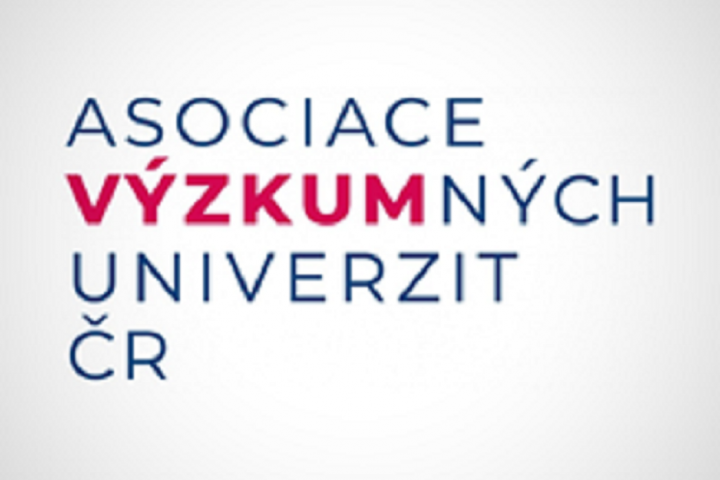
"I consider the results in both competitions to be an extraordinary success for our association and individual universities and proof of the quality of our scientists. I also see it as a fairly obvious signal of the gradual diversification of the research environment in the Czech Republic. At the same time, it is a great commitment for the future, and I believe that by systematically supporting cutting-edge science, we will be able to repeat these results in the future. It is also important to recall our association's appeal to the representatives of the GA CR, the RVVI and especially the government to ensure that these irreplaceable schemes are adequately funded, as they represent a major added value for basic research," says Vojtěch Petráček, President of AVUni and Rector of Czech Technical University in Prague.
EXPRO supports five-year projects that have the greatest potential to bring breakthroughs in their field, with a total allocation of CZK 450 million. CZK. Junior Star, with an allocation of more than half a billion crowns, is aimed at projects of budding scientists and five-year projects that enable greater independence or the establishment of their own research group.
Association of Research Universities of the Czech Republic with 8 supported projects in the EXPRO call completely covered the higher education sector. 3 projects will be solved at Masaryk University, 2 each at Charles University and Czech Technical University in Prague. One project was also awarded to Palacký University in Olomouc.
In the case of the Junior Star, AVUni was awarded 17 projects out of the 23 supported. The remaining 6 projects will be equally awarded to institutes of the Academy of Sciences of the Czech Republic and universities outside AVUni. From next year, 5 projects will be solved at Charles University and 4 at Czech Technical University in Prague and the Institute of Chemical Technology in Prague. Another 2 projects will be carried out at Masaryk University and one each at Palacký University in Olomouc and Brno University of Technology.
Grant Agency of the Czech Republic (GA CR) will fund 10 new EXPRO projects and 23 JUNIOR STAR projects from next year. Both prestigious competitions aim to promote scientific excellence through superior conditions - EXPRO is designed for experienced scientists who have a breakthrough idea, while JUNIOR STAR will allow outstanding promising scientists to pursue their own research topics. The five-year projects will receive a total of almost one billion crowns.
"Within the EXPRO and JUNIOR STAR competitions, only the best projects that receive the support of international evaluation panels are always supported. Their researchers have better conditions of support during the five-year solution period," said Petr Baldrian, Chairman of GA ČR. "What is important is what these projects are expected to deliver - EXPRO is expected to make a breakthrough in a given scientific field, and JUNIOR STAR enables a new independent scientific generation to be built."
Projects will, for example, focus on the development of new detector systems for particle identification, contribute to more efficient plant breeding through a more detailed understanding of evolutionary forces, but also improve the regulatory framework involving artificial intelligence, explore ways to reduce environmental burdens or design more effective cancer therapies.
EVALUATION PROCESS
- Members of the disciplinary committees are exclusively foreign scientists not connected with the Czech environment
- The evaluation process is divided into two phases: each supported project is first evaluated by six experts on the given topic and then discussed in detail at a meeting of the field committee
- The statutory evaluation period is 8 months
- For each project proposal, at least four evaluations by members of the committee and preferably two external evaluations by foreign experts are prepared
EXPRO
The aim of EXPRO grants is to create conditions for the development of excellent research, to set standards for excellent science and to help overcome barriers that reduce the success of project proposals to the highly prestigious European ERC grant competition. One of the obligations of researchers is to apply for an ERC grant. The cost of EXPRO projects, which are mainly aimed at experienced researchers, can reach up to 50 million CZK over five years. The EXPRO grant competition will only be launched in even-numbered years.
In this year's competition, out of ten supported projects, three will be solved at Masaryk University, two each at institutes of Academy of Sciences, Czech Technical University in Prague, and Charles University. One grant was also awarded to scientists from Palacký University in Olomouc. More than CZK 450 million will be spent on these projects.
JUNIOR STAR
The JUNIOR STAR grants are intended for excellent early career scientists up to 8 years after obtaining their Ph.D. who have already published in prestigious international journals and have significant international experience. Thanks to the five-year project with the possibility to draw up to 25 million CZK, they will have the opportunity to become scientifically independent and possibly start their own research group, which can bring new research topics to Czech science.
As of next year, a total of 23 JUNIOR STAR projects will be newly supported, of which the largest number will be carried out at Charles University (5 projects), Czech Technical University in Prague (4 projects), Institute of Chemical Technology in Prague (4 projects) and Academy of Sciences (3 projects). More than half a billion crowns are available for these projects over the next five years.